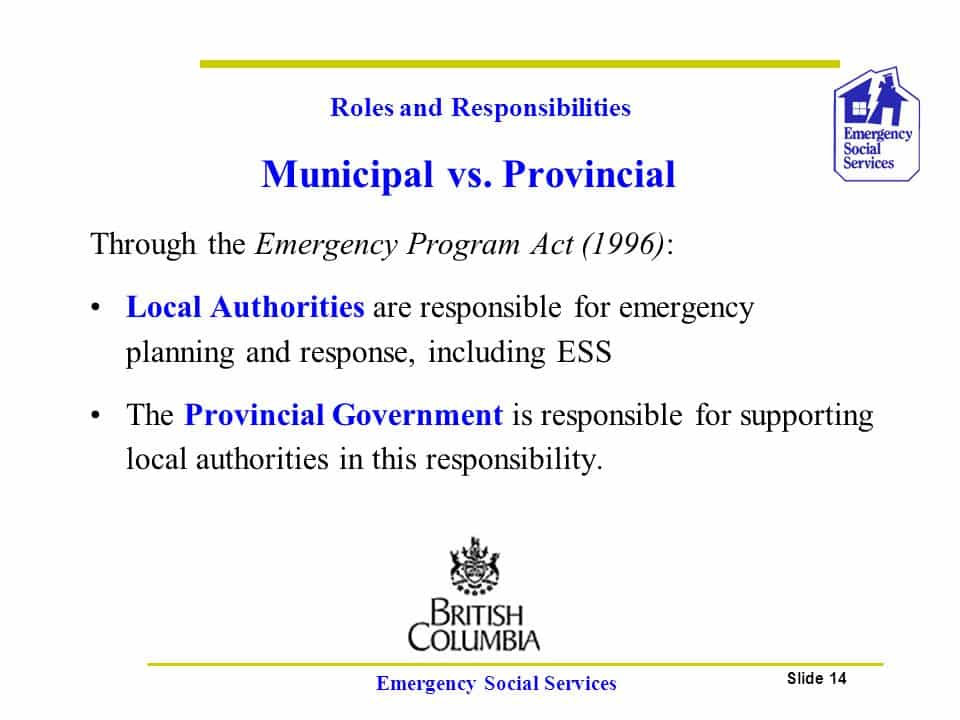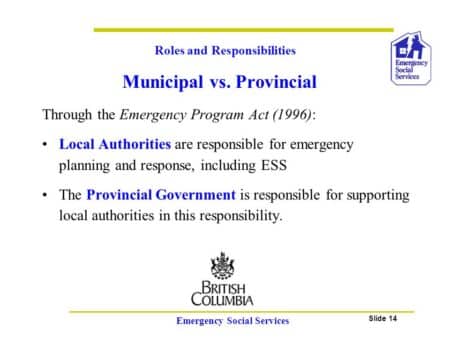
The British Columbia Emergency Program Act Update
The british Columbia emergency program act has recently been updated. This article provides an overview of the changes, the input received from the initial engagements, and what the future holds for state of emergency planning in British Columbia. This article is written with the intention of helping the government better understand the needs and perspectives of citizens in British Columbia. We hope you find it helpful. We look forward to hearing from you!

Modernization of British Columbia emergency program act
The Modernization of British Columbia emergency program act is being proposed by the government of B.C. to address climate change and its impacts on vulnerable communities. This is an important piece of legislation that seeks to establish First Nations as emergency management partners, and would see reconciliation with First Nations achieved through the introduction of new provisions. Chief Don Tom, vice-president of the Union of B.C. Indian Chiefs, says giving First Nations a say in the drafting of legislation shows that the government is committed to the U.N. Declaration on the Rights of Indigenous People.
This act is designed to protect vulnerable citizens from unforeseen disasters and other calamities. The province is aiming to modernize the Act by incorporating best practices from other countries. The Government is looking for public input on the proposed changes to better meet the needs of vulnerable citizens and communities. The UBCM Flood and Wildfire Advisory Committee is one way to engage with local governments. The committee will facilitate communication and consultation among stakeholders and ensure that the perspectives of local governments taken into account. It will also serve as a platform to exchange knowledge and expertise. The meeting of the committee will take place in June 2019.
Input from initial engagements
Input from initial engagements for the draft Emergency Program Act will considered as the Province prepares to introduce new legislation in the near future. The province’s ministry of transportation and infrastructure has opened a public engagement website. This site explains the Act’s key responsibilities and authorities, guides experts, and governs emergency response. You can share your opinions and concerns by taking the survey, which will close on Feb. 19 at 4 p.m. PDT.
This engagement process will serve as the first of many outreach activities. The results of the consultations will used to create an interim report that will presented to the Minister of Fisheries, Oceans, and the Canadian Coast Guard. Local governments will asked to provide responses to a survey posed by the UBCM. The report will highlight the views and concerns of local governments. The interim report will also provide a basis for the government’s next steps.
Impact of changes on local emergency plans
A BIM must prepared to declare a local emergency if necessary. This includes a policy group that includes elected officials and senior executives. The policy group provides the EOC director with policy direction, such as declaring a local emergency. This policy group also maintains a record of staff training in emergency management. It important to have an appropriate level of coordination with neighbouring local authorities to ensure essential services restored as quickly as possible.
An emergency program coordinator has the power to acquire land and use personal property. The act also allows the coordinator to authorise or require a person to render assistance during an emergency. This allows emergency response teams to coordinate essential services and other necessities in British Columbia. However, it is important to note that the new law does not apply to local emergency plans in Vancouver. Municipal emergency plans must approved by the City of Vancouver and the District of Burnaby.
Future of state of emergency in British Columbia
The government of B.C. has declared a state of emergency after torrential rains caused mudslides and isolated mountain towns in British Columbia. One person died and another three are missing in the flooding. As a result, the province has ordered supplies to the Hope relief camp and is housing nearly one thousand people. The RCMP have recovered the body of a woman who died in a landslide along Highway 99 near Lillooet.
The government of British Columbia extended the provincial state of emergency until November 10, 2020. During the pandemic, the Ministry of Public Health and Safety issued a ministerial order granting authority to issue tickets to those who violate the orders of the Public Health Officer. Furthermore, the Attorney General of British Columbia suspended civil jury trials until October 3, 2021. The state of emergency declared by the government to provide safety and support to the people and to the environment.

Comments (0)